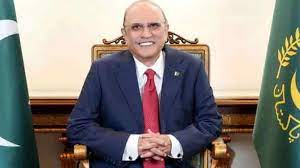Growing global recognition as PM’s smart lockdown strategy paying dividends

Islamabad: With a steep decline from around 6,800 COVID-19 patients a day in mid June to 1,209 during last 24 hours across Pakistan, the world is growingly acknowledging Prime Minister Imran Khan’s smart lockdown strategy, mainly focusing balance between lives and livelihood.
On June 13, Pakistan had reported 6,825 coronavirus cases out of 29,546 tests – the highest score so far in the country. During last 24 hours, only 1,206 persons tested positive of total 22,006 tests.

Out of 1,821,296 tests, the country has so far reported 270,399 confirmed cases, with 219,783 recoveries and 5,769 deaths.
However, courtesy of the prime minister’s undeterred opposition to the blanket lockdown, the country ebbed away the feared economic disaster as faced by the countries in the region and in the developed world.
“The only solution as the world has discovered is a smart lockdown, which allows for economic activity with SOPs. We are amongst the pioneers of this approach,” the prime minister said on Twitter.
In its latest study, Imperial College of London ranked Pakistan at fourth for coronavirus reproduction in the country based on July 20 data. Pakistan has achieved 0.73 rate while the countries getting below 1 rating are considered the best for their anti-COVID efforts.
Interestingly, the countries including Germany and Portugal which rank above Pakistan are also advocating the very concept of smart lockdown to prevent new surge in coronavirus infections.
Besides the administrative measures to ensure strict closure of hotspots, the prime minister repeatedly addressed the nation advising them for strict precautions to avert the disaster.
“But now as the results show that the measure works, many developing nations are also promoting the policy. Germany, Italy and Portugal are also discussing urban shutdowns to avert a new increase in infections of coronavirus. More and more countries are closing down smaller territories, as opposed to shutting down the whole country,” Bangladesh-based The Business Standard while lauding the prime minister’s smart lockdown approach despite “fierce opposition.”

The rationale behind the smart lockdown was to protect the country, particularly the daily wagers, from the worst economic scenario in a country where millions already live below poverty line.
With the passage of time, not merely the countries but the international organizations, joined the prime minister’s call for balancing between lives and livelihood to avert the massive layoffs and consequent deaths due to hunger.
“By the end of the year, 12,000 people per day could die from hunger linked to COVID-19, potentially more than will die from the disease itself. This is more than the peak global coronavirus death rate of 10,000 per day in April,” according to Oxfam, an international confederation of 20 NGOs working in over 90 countries against injustices causing poverty.
“New hunger hotspots are also emerging. Middle-income countries such as India, South Africa, and Brazil are experiencing rapidly rising levels of hunger as millions of people that were just about managing have been tipped over the edge by the pandemic. Even the world’s richest countries are not immune,” the Oxfam report said.
The US-based Bloomberg news agency also termed the smart lockdown approach the only hope of returning to a more normal life as the world awaits a vaccine.
Prime Minister Imran Khan’s balanced approach also got validation by world famed scientists, organizations as well as international media.
According to Daily Mail, Nobel laureate scientist Michael Levitt had also warned in May that coronavirus lockdown could have caused more deaths than it saved as the decision to keep people indoors was motivated by ‘panic’ rather than the best science.
The World Food Programme (WFP) estimates that the number of people experiencing crisis level hunger will rise to 270 million before the end of the year as a result of the pandemic, an 82% increase since 2019.

The report highlighted 10 extreme hunger hotspots including Yemen, Democratic Republic of Congo (DRC), Afghanistan, Venezuela, the West African Sahel, Ethiopia, Sudan, South Sudan, Syria and Haiti.
Giving out a generous relief package, the incumbent government launched countrywide cash assistance program for around 12 million people, job losers and small businesses.
Despite opposition, the prime minister took a bold decision to open up the construction sector to generate economic activity across allied 40 industries – but subject to strict enforcement of the anti-COVID measures of social distancing and masks.
The Oxfam said that consequent to a sudden 21-day lockdown by Indian government millions of people who were already living precarious existences on the brink of hunger were suddenly tipped over the edge and left around 40 million jobless overnight.





